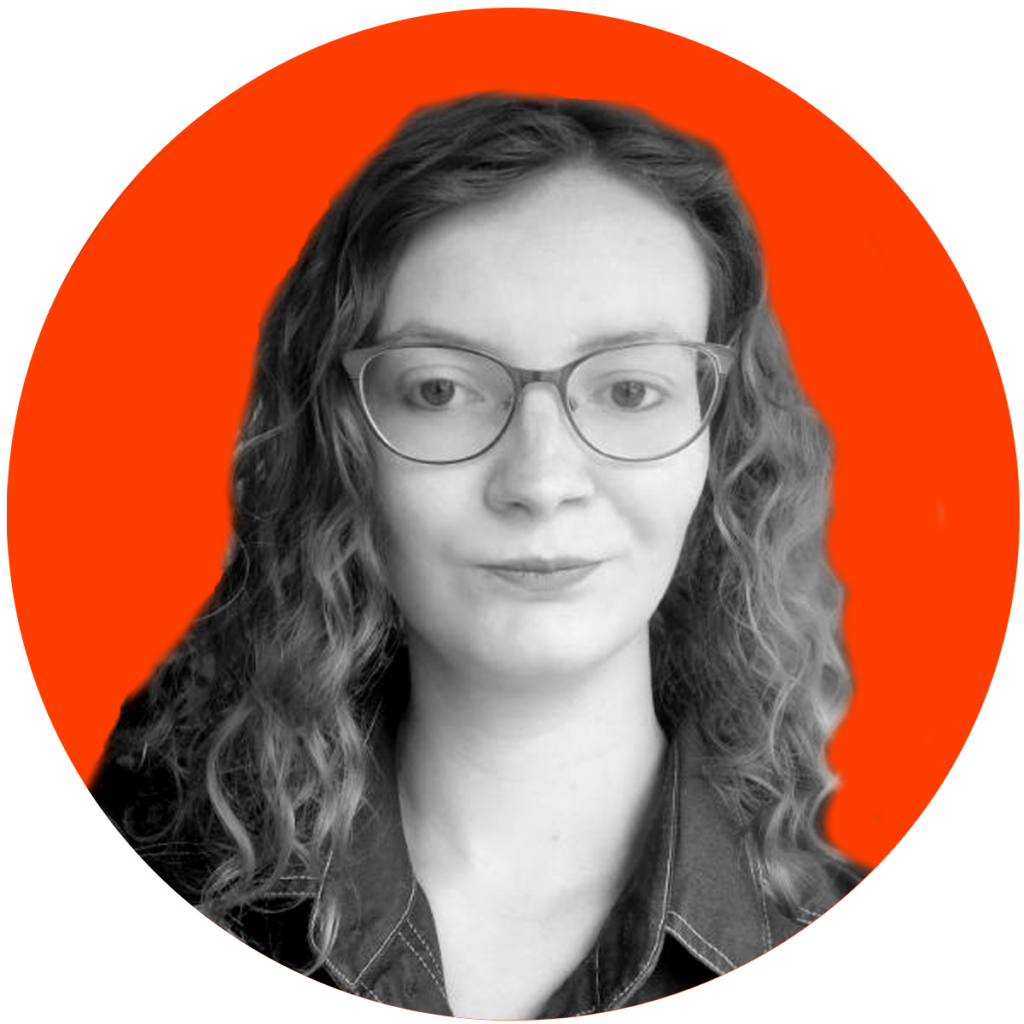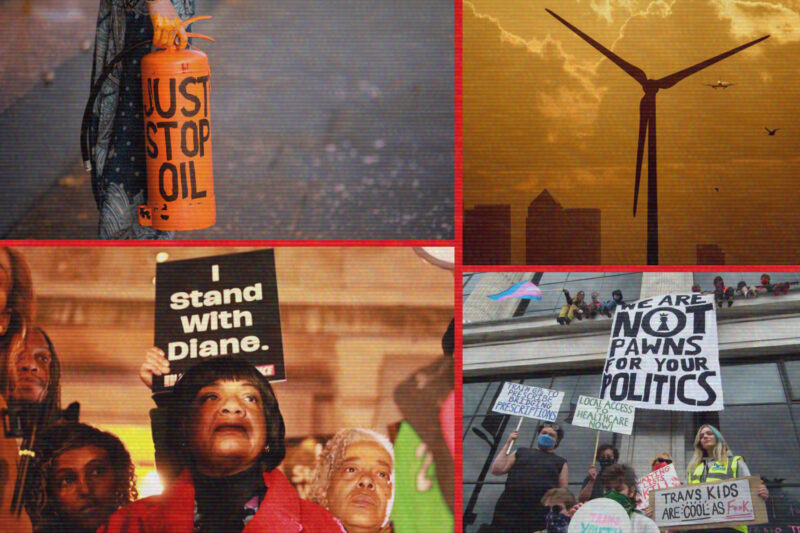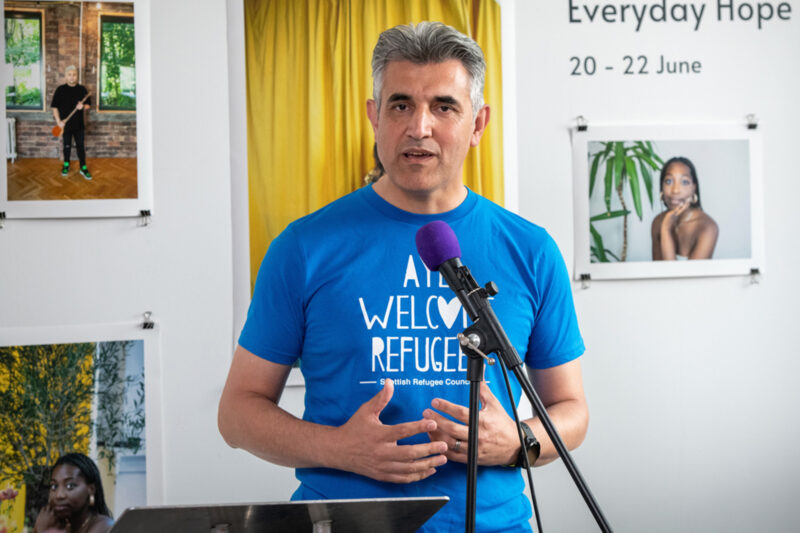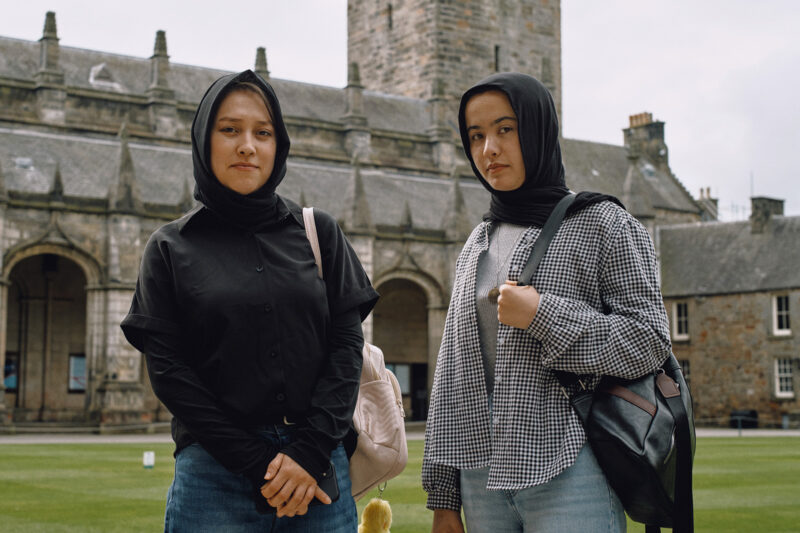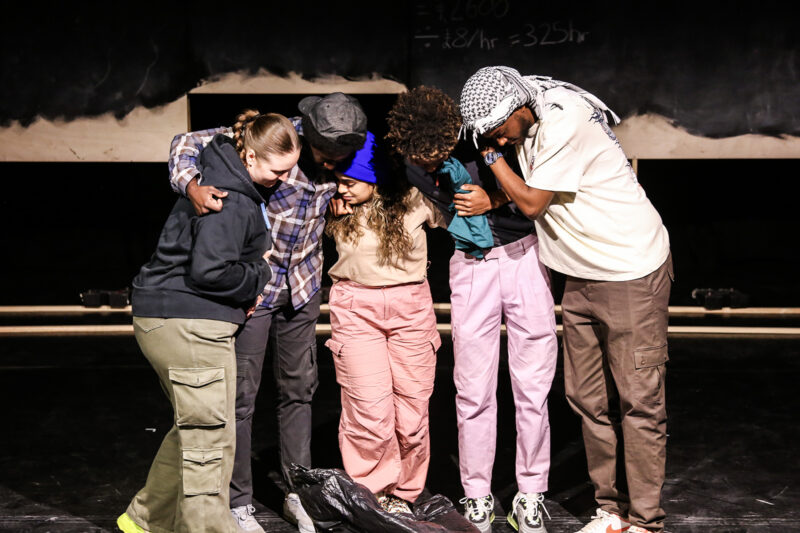A greener Glasgow
From Afghan allotments to vibrant gardens, Muslims are helping to bring verdant community spaces to the heart of the city
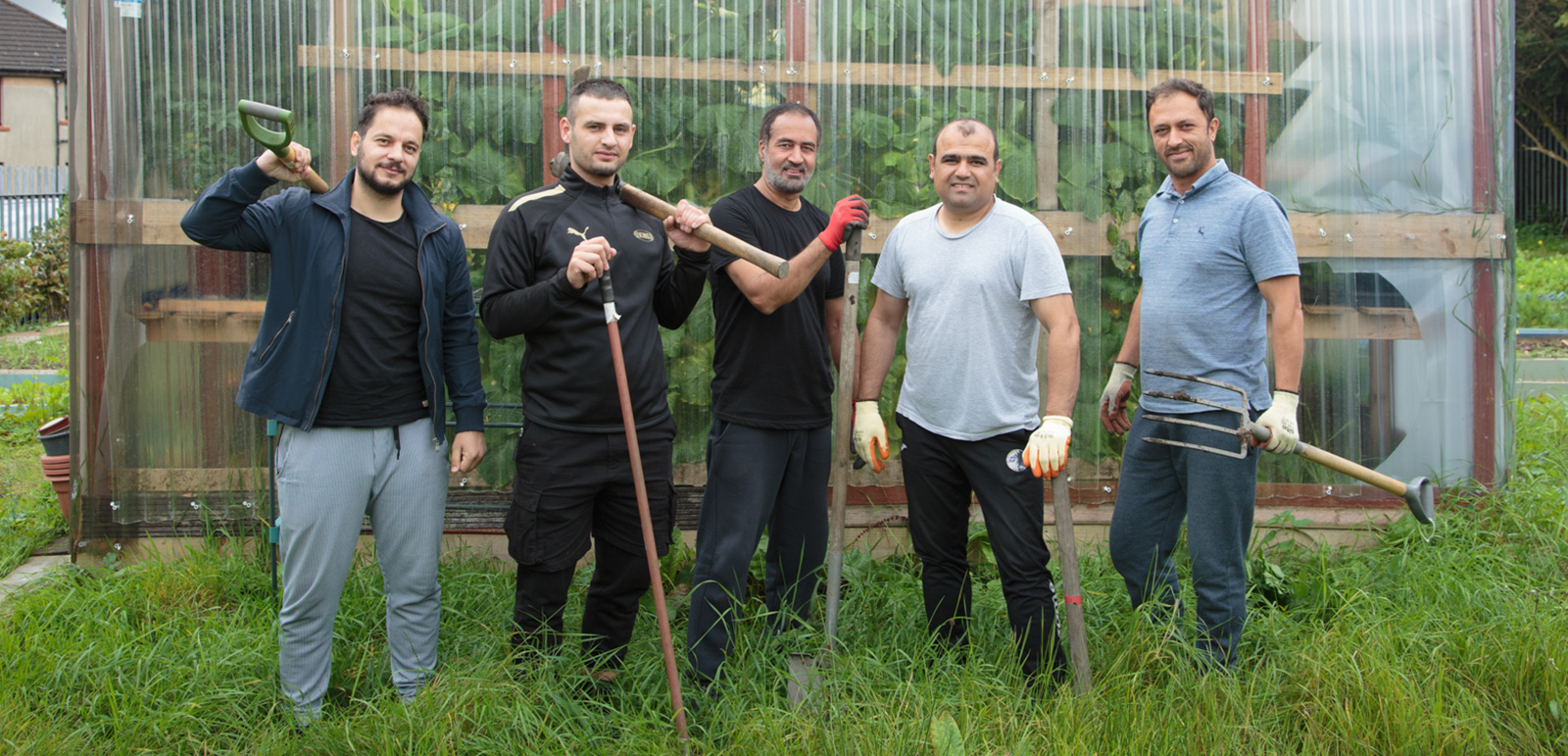
In the middle of a housing estate in north Glasgow, an area commonly associated with poverty and deprivation, sits a small allotment. On any given evening, Afghan families can be found there picking vegetables, planting seeds and sharing stories over cups of green tea, while their children run around beside them.
Just two years ago, the land was overgrown and neglected. Then Abdul Bostani saw its potential and set about transforming it into what it is today.
Bostani is the director of Glasgow Afghan United, a local grant-funded charity founded in 2004 to forge links between Scots and Afghan refugees who had arrived in the country after fleeing war at home. Since his arrival in Glasgow in 2001, Bostani has thrown himself into city life, but has never lost touch with his roots.
“I have spent half of my life in Glasgow. I was welcomed. I came to this city with nothing,” he said. “Today, 20 years later, I’m a local councillor in Maryhill. This tells you about Glasgow. I’m proud to be a Glaswegian. I’m a proud new Scot. And proud to have my own heritage.”
As soon as he took over the plot of land, Bostani brought in a team of volunteers and began removing trees, building planters and erecting a greenhouse. “I have a little bit of experience growing things because, when I was a child, I helped my dad in our garden at home in Afghanistan. We had a big garden growing a lot of vegetables,” he added.
In two years, the space has gone from being a local eyesore, choked with weeds and rubbish, to a small but thriving community garden. When Bostani’s project began, it had just three raised growing beds. Today, it grows 20 different fruits, vegetables and herbs, and has provided food for 400 people from Glasgow to Edinburgh and Dundee. Importantly, all of its produce is central to Afghan cooking, including gandana — a variety of leek — chillies and mooli radishes.
The allotment is a small part of Glasgow Afghan United’s community-based work, which includes hosting the annual Refugee Festival Scotland football tournament, Dari and Pashto classes, and a women’s project. It is, however, an important one. At the height of the Covid-19 pandemic, the garden provided an outdoor meeting place where families and friends could come together for socially distanced chats and get some much-needed fresh air.
“It was a life-saver for us,” Bostani said. “A lot of us have large families with children and we are overcrowded, in the majority of cases, in our homes. We may stay in a flat: two bedrooms with six, seven people. In this space, you come, you work and it supports you mentally and physically. You’ll be a totally different person at the end of the day, when you walk away from this allotment.”
Dr Najeebullah Hoshang agrees. He moved to Glasgow in 2019 with his family, just a few months before the pandemic hit. He had been forced to flee Afghanistan, where he was a public health adviser to the government, following threats to his safety. When the UK went into lockdown, he, like the rest of us, ended up stuck indoors for months. As soon as the restrictions eased in summer 2020, he began volunteering at the allotment.
“We came here because it was not possible to meet people indoors,” he said. “We worked here with the family, and started growing things. We missed some of the vegetables we used to eat in our own country, so we said, ‘Why not? Let’s grow them here.’”
Now that life has regained some normality, the allotment remains valuable to Hoshang, who is waiting to be registered with the General Medical Council so he can return to work.
Sadly, outdoor community spaces in the UK are not often easy to find. Poorer urban communities lack access to green space across the board. A recent report by Friends of the Earth also found that members of minority communities in England were more than twice as likely to live in areas without green space than their white peers.
“Parks and green spaces are at the centre of urban social life,” said Professor Sarah Neal, an expert in spatial planning and diversity from Sheffield University. “The most successful are where there is a diversity of use and a visible diversity of groups within them.”
However, studies have shown that minority groups often feel unwelcome in the urban green spaces that do exist. Research based on in-depth interviews with Muslim community leaders published in August by the academic journal Nature and Space concluded that a lack of inclusive imagery, prior instances of discrimination in public spaces and a failure to acknowledge diverse needs, for example not providing women-only spaces, can prevent shared use.
“Not everyone feels safe, not everyone feels confident, not everyone feels entitled to just go and be in a park,” Neal said. “It’s not always that easy, even though they are public spaces. When they don’t work so well, they become points of exclusion and inequality.”
‘Parks and green spaces are at the centre of urban social life’
In recent years, a variety of projects have sprung up in Scotland with the aim of tackling these problems. On Glasgow’s Southside — one of the most diverse parts of Scotland and home to the highest concentration of Scottish Muslims — local volunteer groups have come together to return neglected gardens and back lanes to use, creating community gardens in areas such as Govanhill and Battlefield.
Elsewhere, communities have acquired land for local use through right-to-buy laws. The Bowling Green in Pollokshields — so named because it was once home to the Kingston Bowling Club — has become a popular place, regularly holding events, including dance performances and an Eid bazaar, that welcome everyone from the local area.
The Hidden Gardens, also in Pollokshields, is one of Glasgow’s longest-established community spaces. Set up in 2003 and funded by a mixture of public donations and charity grants, it welcomes thousands of visitors per year. What was once the site of a tram depot is now a tranquil garden, full of flowers, trees and lawns. A newer building on the site also provides space for classes and events.
Saubia Safdar got involved with the Hidden Gardens in 2012 through community cooking classes. She brought recipes from her native Pakistan to share with 12 other women, and learned how to make an array of dishes from elsewhere in return. Now she proudly uses recipes from Spain, Poland, Italy and Bangladesh at home.
Safdar also works for the project, two days a week, as a cleaner, regularly attends classes and visits the garden on her days off. “The Garden helps a lot of people. It changed a lot of people’s lives. It changed mine, definitely,” she said.
Safdar is full of praise for the organisation, which she credits with boosting her confidence and allowing her to make friends from around the world. “When I first arrived in Glasgow, I had kids and didn’t really do anything. I was a mum, at home. Then, when my kids were in primary school, I thought, I need to do something, they’re growing up now.’ I started volunteering at different places and didn’t find one that was nice and friendly. When I came here, it was different,” she said.
“Most people, when they come to the UK, stay within their community. They are afraid to meet other people. One of the main problems is language. Places like here encourage people to integrate, especially the classes, the gardening group, the cookery. The environment is so good and friendly. Within a few days you are like, ‘OK, it’s fine, they are like us.’ Nobody laughs at you, nobody makes fun of you, people don’t make you feel you are less than them. They give you respect. That’s all you need.”
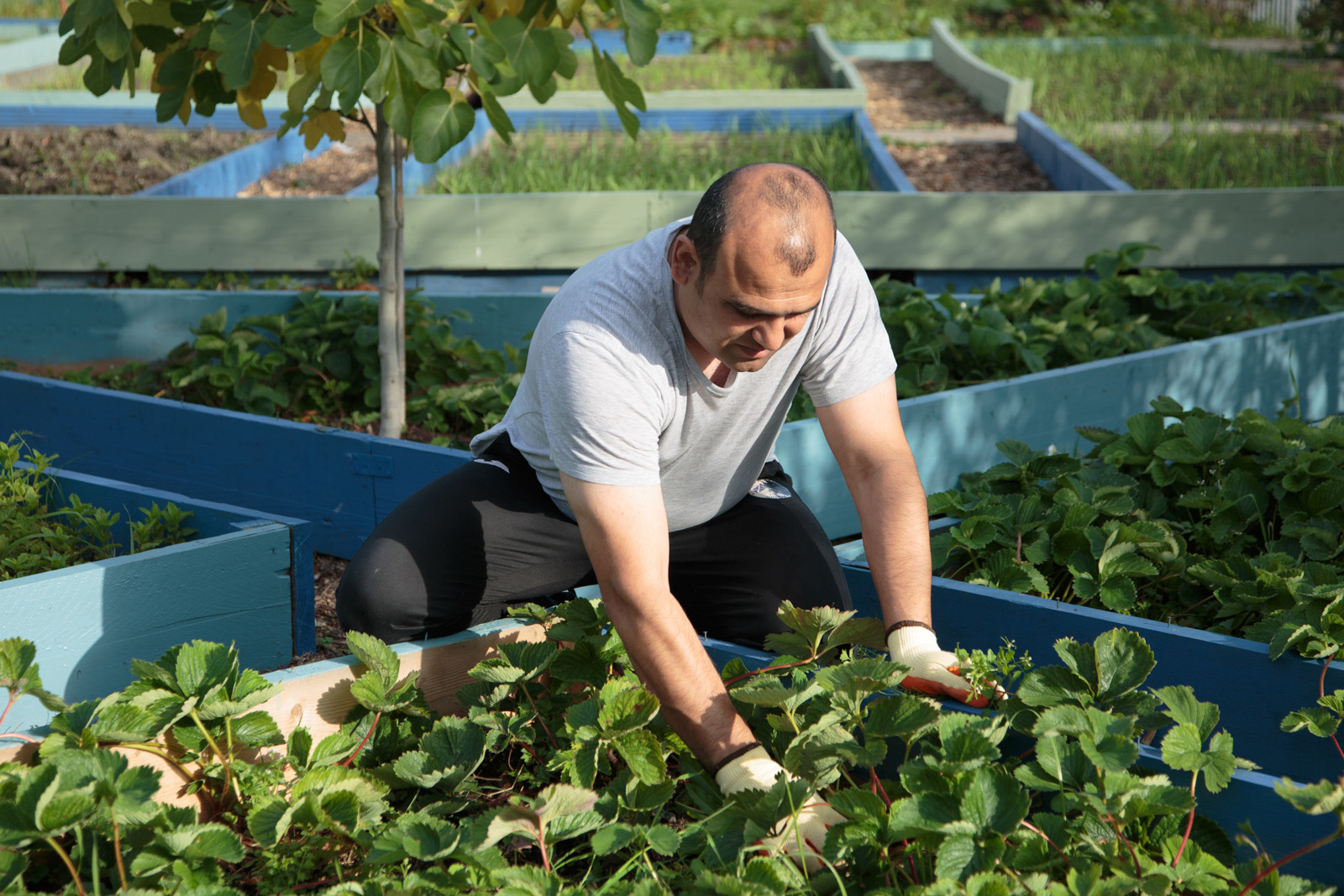
Amanda Patterson, chief executive of the Hidden Gardens, explained that a special effort was made to engage with locals from the outset. Over a period of 18 months, the charity spent time talking with and listening to the community about what they wanted from the space and what was missing in Pollokshields.
“What was overwhelmingly coming back from the community was that green spaces didn’t feel safe, particularly for Muslim women,” she said.
Concerns about racism when out in public, the need for women-only spaces and a lack of diverse voices in decision-making about public spaces were common. At design stage, it was decided that a fence would be placed around the Hidden Gardens and a decision was made to ensure that the space would be staffed at all times. Alcohol, smoking and pets are not allowed on the premises.
“It makes sure that it’s a clean space and that it’s neutral for anyone to use,” Patterson said.
The approach has worked. In addition to visitors, around 30 people volunteer on a regular basis to maintain the garden. Many are people seeking asylum in the UK and a significant number come to practise their English. Around 100 more locals help out as and when needed.
Patterson is most proud of the garden’s programme of events, ranging from art exhibitions and performances to more solemn gatherings. One that stands out for her was for Syrian refugees, when a fragrant white rose was added to the gardens in remembrance of Abu Ward, a Syrian man who maintained a garden in war-torn Aleppo for five years before being killed by a bomb. Food was served, choirs sang and children took part in the Refuweegee letter-writing campaign, in which handwritten notes were sent to welcome new arrivals to the city.
“There were people from different cultures involved, but particularly Syrian refugees were given a platform to feel visible and heard in the community,” said Paterson. “That was one of the original purposes for the garden when it was created.”
 Newsletter
Newsletter

